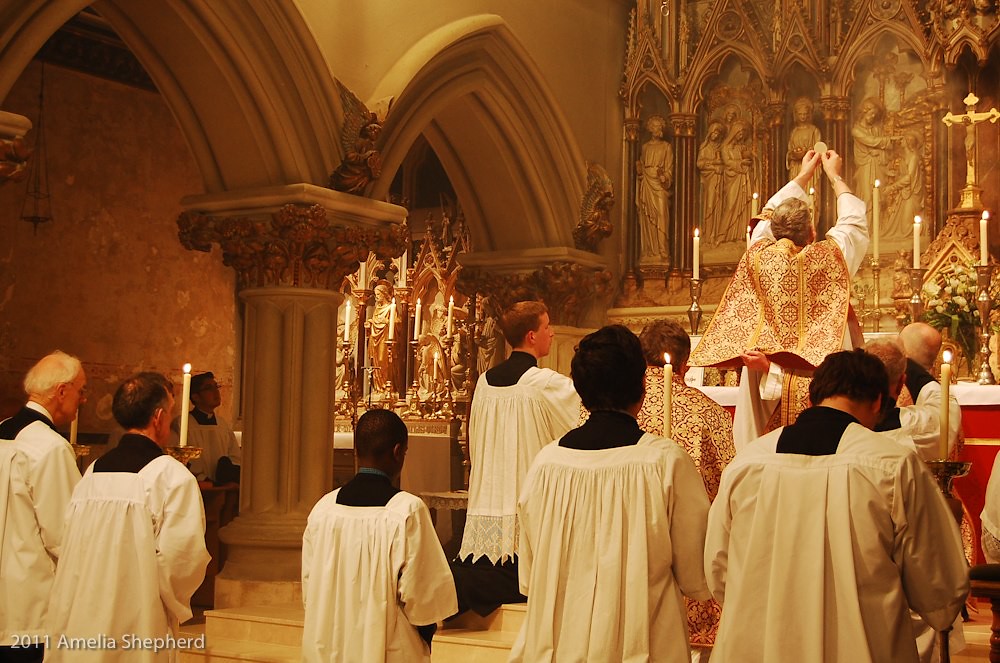
Fr Mark wrote sometime ago agreeing with me on Eucharistic adoration; we both think it is a good thing, we are just worried about it becoming casual, detracting from worship of the Blessed Sacrament in the tabernacle; but read Father Mark's rather good article.
Recently, he wrote comparing the two different "Forms" of Mass, he speaks about the "latreutic finality of the Mass", basically what he is saying is that the older form is more evidently about worship, latria, and he gives plenty of practical examples.
There are some excellent priests, and even bishops, going around basically saying every problem of today's Church will be solved by getting the Blessed Sacrament out of the tabernacle and into a monstrance on the altar. Then we will have vocations, committed marriages open to life, prayerful priests and people, etc. etc. but interestingly they point to places where this actually happens. Certainly it seems to have an effect but I am still suspicious about it. What I suspect it is all about is latria; Exposition makes up for the absence for the absence of latria in the Novus Ordo.
I can't help wondering whether the great weakness of the Novus Ordo is that in the decade or so when it was composed, was actually a time the Church was having a crisis with the notion of worship. The brilliant young liturgical scholar Fr Uwe Michael Lang gave us a brief history of the Liturgical Movement at the CCC Colloquium, he seemed to have been suggesting that worship, beyond texts, was not one of its priorities, that academic liturgists have not been very interest in the "performance" of the Liturgy. Thus orientation, signs of reverence and worship were stripped away without much protest but these were the very thing that were most noticeable to the ordinary Catholic and formed their liturgical, theological, spiritual and even moral consciousness.
I suspect more than that happened, the stripping of the ceremonies led very directly to a theology that tended to strip God of his divinity, There is a very interesting heresy in this years Tablet lecture, some American journalist says of VII, "they didn’t come up with a new understanding of God. Still one God, two natures, three persons" which the great Fr Z points out. It is obviously a slip of the tongue but in many ways it illustrates the Tablet's and others default heresy: that of seeing God, even in his Triune nature as being like us, rather than the Second Person alone having two natures. If God shares our nature then we need not genuflect, kneel, humble ourselves in his presence, ultimately there is no need for the Incarnation, the Church, Salvation. Is that not really why we need a Synod on Evangelisation? because we have lost an understanding that Man must worship.
The problem is the Novus Ordo does not demand we worship with anything more than words!
I must admit I tend working on the principle of "What earlier generations held as sacred, remains sacred and great for us too, and it cannot be all of a sudden entirely forbidden or even considered harmful" I tend to use at least some of the signs of reverence in the newer Form from the older Form, at least to the point of genuflecting each time I cross before the tabernacle. I am tempted to genuflect before and after each elevation. It was certainly the reason for our decision to celebrate most Masses here according to the clear rubrics of the Missal: ad apsidem (incidentally this is a priest's choice, as much as the choice of Eucharistic Prayers, the CDW has wrapped several Bishops across the knuckles for attempting to interfere in such a choice).






0 comments:
Post a Comment